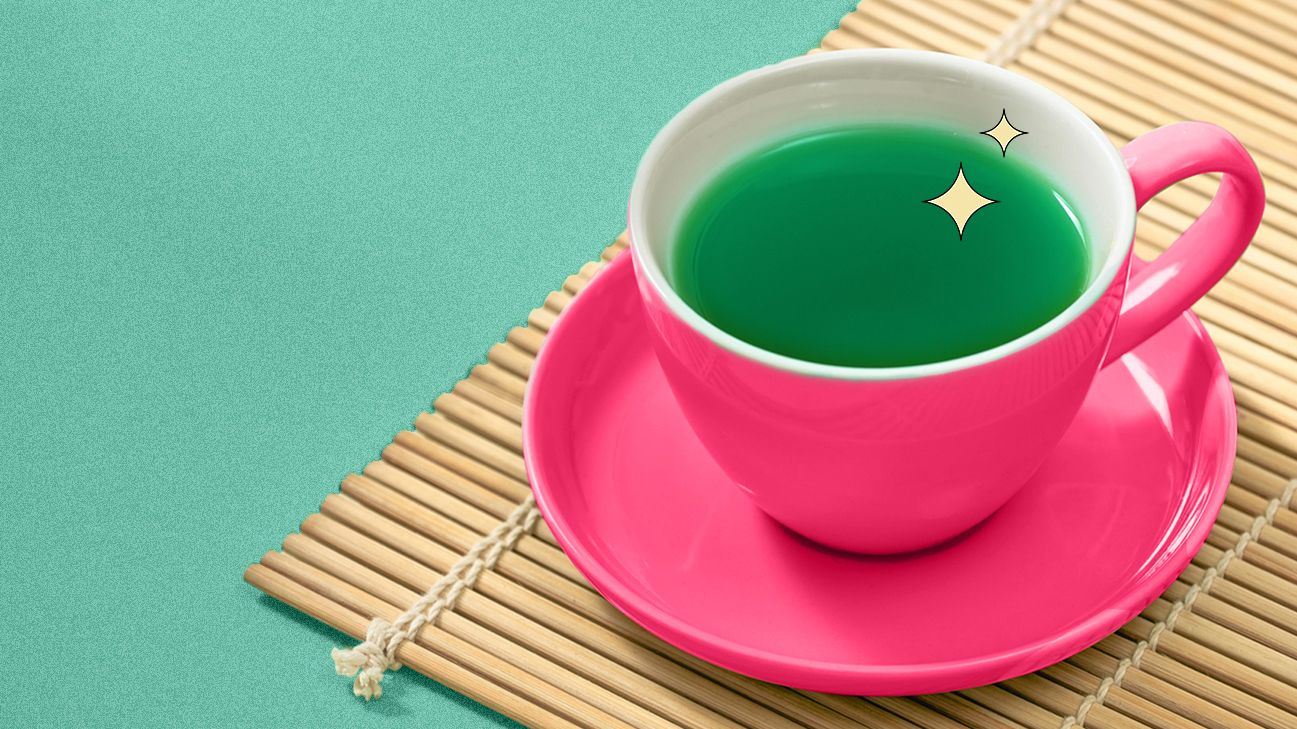Green tea is made by steeping the unfermented leaves of the Camellia sinensis plant in hot water.
While several types of tea are derived from this same plant, green tea contains the highest concentration of potentially disease-fighting antioxidants and has been associated with many impressive health benefits.
Need more reasons to brew a hot cup of green tea and start sipping? Keep reading for six of the top benefits of this delicious drink.

Part of what makes this superstar bevvy so special is its content of antioxidants — compounds that can neutralize harmful free radicals to prevent cell damage and promote better health.
The main superhero in your cup of green tea is epigallocatechin gallate (EGCG), a powerful phytochemical that slows irregular cell growth and relieves inflammation.
While more studies in humans are needed, some research suggests EGCG could help protect brain function, lower blood sugar levels, and slow the spread of cancer cells.
Green tea also boasts a long list of other potent antioxidant compounds, including quercetin, chlorogenic acid, theogallin, and epicatechin.
Looking for an easy way to kick-start your metabolism and rev up fat burning? Consider brewing up a cup of hot green tea.
Some studies suggest green tea can bump up your metabolic rate (the number of calories your body burns throughout the day).
Also, according to a 2014 review, green tea could help you lose weight by modifying or reducing your appetite, blocking the production of fat cells, and decreasing fat absorption in your body. But more research is needed to confirm these benefits.
Sipping on a glass of green tea may boast some big benefits when it comes to heart health.
In fact, research involving people of a variety of body sizes has found that green tea can reduce levels of total and LDL (“bad”) cholesterol in the blood, both of which are major risk factors for heart disease.
Drinking tea has also been shown to reduce blood pressure levels, especially in people with high blood pressure (aka hypertension).
What’s more, a 2016 review of nine studies found that people who drank at least one cup of green tea per day had a lower risk of heart disease, stroke, and bleeding in the brain than those who didn’t.
In addition to enhancing the health of your body, drinking green tea might help keep your mind sharp.
In fact, some research suggests that a combination of compounds found in green tea can soothe anxiety, increase attention span, and improve memory.
Other studies have found that adding green tea to your daily diet could be linked to a lower risk of dementia, Alzheimer’s disease, and cognitive impairment over time. But researchers need to perform more well-designed studies before they’ll really understand how it can affect us.
Green tea is great for helping to keep your blood sugar levels stable and increasing insulin sensitivity, which ensures that your body can use insulin efficiently to transport sugar from your bloodstream to your cells.
Green tea and green tea extract have been shown to help reduce insulin resistance and improve glycemic control. But evidence of this beneficial effect is still pretty inconsistent.
Several other studies have found that green tea consumption could be associated with a lower risk of developing type 2 diabetes in the long run.
Forget the breath mints — green tea has powerful bacteria-fighting properties that can keep your mouth feeling fresh all day long.
A 2015 study found that green tea extract could block the growth of Solobacterium moorei, a strain of bacteria that is a common contributor to bad breath.
And in a 2016 study, tablets containing green tea were effective at decreasing the amount of sulfur-containing compounds — the same compounds found in foods like garlic and onions — in the mouth by a whopping 55 percent to help freshen breath and improve oral health.
Consider replacing that morning coffee (or at least the second or third cup) with green tea. Adding some green tea to your day (a good source of polyphenols) could help you reap some health benefits.
So what’s the best way to get that daily dose? While green tea Frappuccinos, green tea ice cream, and bottled versions are all appealing, sticking to the traditional brewed (hot or cold) version is likely to provide the biggest antioxidant punch.
Because green tea contains caffeine, it’s also a good idea to keep an eye on your intake and avoid going overboard, especially if you’re sensitive to it.
Although green tea is generally considered safe for most people, check with a medical professional before using green tea supplements, especially if you’re taking any medications or have underlying health conditions.
Green tea all day
- 11 best teas to kick those allergies this spring
- Wired or tired: These herbal latte recipes will alter your energy day or night
- The best teas to calm an annoying cough
- 5 food that can help endometriosis (and 6 to avoid)
- 9 simple snacks and meals to ease anxiety
- 31 healthy green recipes to celebrate St. Patrick’s Day

